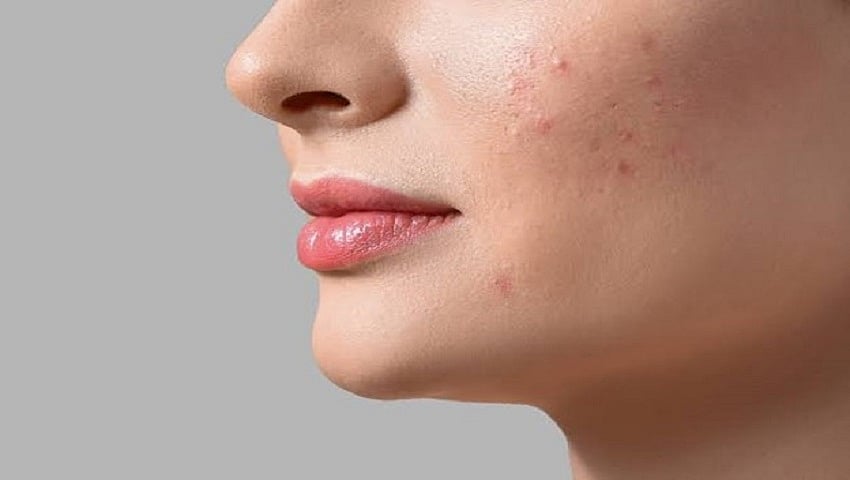Getting rid of acne is possible with a thoughtful skincare routine and skin care products that address the root causes of breakouts. With consistency and the right approach, you can significantly improve your skin's appearance and health.
Acne is a common skin issue characterized by clogged pores, which can lead to the formation of pimples, whiteheads, and blackheads. While acne is particularly common among teenagers and young adults due to hormonal fluctuations, it can also affect individuals later in life. The good news is that there are multiple strategies available to help manage and reduce acne. Continue reading to discover effective methods for dealing with this skin condition.
Effective Tips to Deal with Acne
Here are some of the most helpful ways of managing acne:
1. Keep Your Skin Clean
Wash your face twice daily using a mild cleanser and warm water, being careful to handle your skin gently. Excessive washing or scrubbing can aggravate acne. Avoid using facial scrubs, astringents, or masks, as they can irritate the skin and potentially worsen acne or the side effects of any acne medication you’re using.
2. Keep Your Hands Away from Your Face
Touching your face frequently can lead to acne flare-ups. Although it may be tempting to pick, squeeze, or pop blemishes, this can delay healing and increase the likelihood of scarring or developing dark spots known as post-inflammatory hyperpigmentation.
3. Avoid Acne Triggers
Using oily or greasy skincare, hair products and sunscreen can exacerbate acne. Opt for products labelled as water-based or non-comedogenic, meaning they are less likely to block pores and trigger breakouts. Consider switching to glycerin- or silicone- based hair products in moisturizing liquid forms, which are lighter alternatives to heavy, oil-based ones. If you prefer using hair oil, apply it to the middle of your scalp and the ends of your hair to prevent acne on your forehead and temples.
4. Use Sun Protection
Shield your skin from the sun, as sun exposure can intensify dark spots (post-inflammatory hyperpigmentation) that may persist after acne heals. Certain acne treatments can also increase your susceptibility to sunburn. Consult your healthcare provider to determine if your medication has this effect. If so, minimise sun exposure and apply a non-greasy moisturiser with sunscreen regularly to protect your skin.
5. Try Products with Salicylic Acid
This common ingredient in skincare helps exfoliate the top layer of damaged skin. By dissolving dead skin cells, it prevents clogged hair follicles and reduces acne. Available over the counter in lotions or cleansers, such as Saliac Face Wash, salicylic acid is effective at treating acne by reducing inflammation and clearing blocked pores, allowing pimples to shrink.
6. Get Products Containing Benzoyl Peroxide
Opt for products with benzoyl peroxide, which works by killing acne-causing bacteria, reducing excess oil, and clearing dead skin cells that clog pores. Over-the-counter benzoyl peroxide products are available in concentrations ranging from 2.5% to 10%. Research indicates that lower-strength options can be just as effective as higher ones. To minimise side effects, it’s advisable to start with a 2.5% water-based formula.
7. Opt for Products with Azelaic Acid
Choose products that contain azelaic acid, as this ingredient helps keep pores from becoming clogged and has mild antibacterial properties. Over-the-counter azelaic acid products are typically available in a 10% concentration. Additionally, azelaic acid can help fade dark spots that remain after acne heals, known as post-inflammatory hyperpigmentation.
8. Try Multiple Products
Using multiple products can be beneficial for treating persistent acne. Each product may contain different active ingredients, helping to target acne in various ways. Applying one product in the morning and a different one at night can improve effectiveness while reducing the risk of skin irritation.
Managing acne requires a combination of proper skincare, avoiding triggers, and using the right products. Keeping your skin clean, resisting the urge to touch your face, and opting for non-comedogenic products can significantly help reduce breakouts. Incorporating acne-fighting ingredients like salicylic acid, found in products like Saliac Face Wash, benzoyl peroxide, and azelaic acid can target acne effectively. Remember, protecting your skin from the sun and being consistent with your routine are key to seeing long-term improvements. By following these strategies, you can keep acne at bay and achieve healthier skin.
